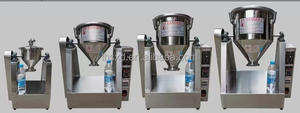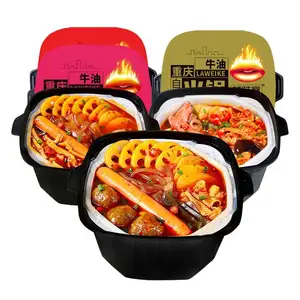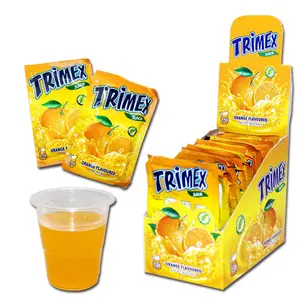Popular in your industry







































































Related Searches:

















































































































































Top categories
About chinese food raw material
The Cornerstones of Chinese Gastronomy
Renowned globally for its rich diversity, Chinese gastronomy offers a tapestry of regional flavors, with a history steeped in millennia of culinary evolution. Considered by many as a form of high art, Chinese cooking rests on a bedrock of essential ingredients, including an array of meats, seafood, vegetables, and grains, each contributing distinct flavors and textures. These components are meticulously chosen based on their freshness and quality to elevate the gastronomic appeal of the dishes they grace.
For purveyors in the food and beverage sector, especially those dedicated to Chinese fare, securing a steady stream of these fundamental ingredients is vital to preserving the authenticity and caliber of their culinary creations. The spectrum of these ingredients spans from staple seasonings and sauces to intricate elements like fermented pastes and cooking wines, with the precise combination of these elements often defining the unique taste and scent of Chinese dishes.
Providers of Chinese culinary ingredients typically offer an assortment of products tailored to the rigorous demands of commercial food service. This selection may encompass soy sauce, rice vinegar, oyster sauce, hoisin sauce, and cooking wines, all curated to support the specific needs of food and beverage enterprises in delivering the quintessential Chinese dining experience.
Essential Ingredients in Chinese Gastronomy
The foundation of Chinese cuisine is built on a diverse array of essential ingredients that shape the hallmark flavors and textures of its dishes. Key examples include:
-
Soy Sauce: Integral to Chinese gastronomy, soy sauce serves both as a seasoning and a condiment. It is available in various forms, such as light soy sauce for stir-fries, dark soy sauce for braising and marinating, and sweet soy sauce, which is sweetened and used for glazing meats or in dressings.
-
Rice Vinegar: With its subtle acidity, rice vinegar imparts a tangy zest, playing a crucial role in dishes that benefit from a vinegar element for both flavor and food safety.
-
Hoisin Sauce: A viscous, sweet, and savory condiment, hoisin sauce is commonly used as a glaze or dipping sauce, contributing a rich umami essence to traditional Chinese dishes.
-
Oyster Sauce: Traditionally derived from oyster extracts, oyster sauce now also comes in vegetarian variants. It infuses a depth of flavor into a broad array of dishes, from simple stir-fries to elaborate sauces.
-
Dried Shiitake Mushrooms: Known for their umami richness and substantial texture upon rehydration, these mushrooms are frequently employed in broths and sauces to add complexity.
Each ingredient is a vital thread in the fabric of Chinese culinary heritage, utilized in myriad ways to capture the authentic flavors of China.
Selecting Chinese Cuisine's Essential Ingredients
Choosing the appropriate essential ingredients is a critical step for any enterprise aiming to craft genuine Chinese cuisine. When exploring options on Alibaba.com for B2B procurement, it is important to consider the provenance, form (be it fresh, dried, or processed), and culinary application of the ingredients.
The provenance of an ingredient can greatly influence its flavor nuances and overall quality. For instance, Sichuan peppercorns deliver a unique numbing sensation sought after in certain dishes but may be less suitable for non-Sichuan fare. Likewise, Chinese dried black beans offer a robust umami taste crucial for specific sauces and stir-fries.
The state of an ingredient—fresh, dried, or otherwise—will dictate its texture and the intensity of its flavor. Fresh ingredients like bamboo shoots or lotus roots provide a crisp texture and pronounced flavor ideal for lighter dishes or as garnish, whereas dried items such as mushrooms or seafood can be reconstituted for recipes that call for a more tender texture.
Finally, the intended culinary use should be a guiding factor. Certain ingredients may be more apt for specific dishes due to their flavor profiles or are more conducive to particular cooking techniques like steaming or stir-frying. A nuanced understanding of these factors will assist in sourcing essential ingredients that fulfill both the culinary aspirations and the expectations of patrons for premium Chinese cuisine.
Alibaba.com: A Trove for Chinese Cuisine Ingredients
Alibaba.com emerges as an indispensable resource for businesses in search of authentic, high-quality Chinese ingredients. Since 1999, the platform has served as a global nexus, connecting suppliers with buyers, and has become a trusted marketplace for small and medium-sized enterprises catering to a clientele with refined palates.
The extensive selection on Alibaba.com ensures that, regardless of the specific Chinese culinary tradition you specialize in or the demands of your clientele, you can locate the necessary ingredients. From classic spices to specialized noodles and oils, each product listing is accompanied by comprehensive details, enabling businesses to make well-informed purchasing decisions that align with their unique needs.
Furthermore, Alibaba.com's dedication to secure trading, exemplified by services like Trade Assurance, offers businesses confidence when placing bulk orders. With multilingual customer support and convenient mobile features, Alibaba.com streamlines the procurement of quality ingredients from trusted global suppliers, bolstering your business in the competitive culinary market.
Frequently Asked Questions on Chinese Cuisine Ingredients
What ingredients are fundamental to the flavor profile of Chinese cuisine?
Chinese cuisine's distinctive flavors are shaped by ingredients such as soy sauce, garlic, ginger, green onions, rice vinegar, sesame oil, and various soybean pastes.
How can I ascertain the quality of Chinese cuisine's essential ingredients?
Securing quality involves selecting reputable suppliers who offer comprehensive product details and opting for organic or non-GMO ingredients when possible. The country of origin can also be a quality indicator.
What should be considered when using essential ingredients in a professional kitchen?
Professional kitchens should prioritize ingredient purity and quality, compatibility with the intended dish, and the potential influence on the final flavor. It's also crucial to ensure ingredients adhere to any dietary restrictions or preferences of your clientele.
Is it possible to use essential Chinese ingredients in non-Chinese dishes?
Certainly, essential Chinese ingredients can be woven into a variety of non-Chinese dishes to impart an authentic touch. Their versatility makes them suitable for fusion cuisines that merge elements from different culinary traditions.
How do I select the appropriate vinegar for my Chinese restaurant?
Select a vinegar that is a staple in Chinese cooking, such as rice vinegar for sushi rice or Chinkiang vinegar to add a robust dimension to dishes like hot and sour soup.
Do essential Chinese ingredients offer health benefits?
Some essential ingredients, such as ginger and garlic, are reputed to offer health advantages like aiding digestion or bolstering the immune system with regular consumption.
What are the typical uses for different soybean pastes?
Varying soybean pastes, such as miso or douchi, are integral to Chinese cuisine. Miso paste is often stirred into soups, marinades, and dressings, while douchi is a seasoning staple in cooked dishes.
How does ingredient purity impact a dish?
The purity of an ingredient can profoundly alter a dish's final flavor and texture. For example, high-quality soybean paste can enhance the taste of a dish more significantly than lower-quality alternatives.
What distinguishes light soy sauce from dark soy sauce?
Light soy sauce is a product of fermented and brewed soybeans, yielding a milder flavor and lighter hue, whereas dark soy sauce undergoes a longer fermentation with added sugars or molasses, resulting in a darker appearance and more robust taste.
Can any vinegar be used in Chinese cooking?
Chinese recipes typically call for specific vinegars like rice vinegar or Chinkiang vinegar, which provide a unique flavor profile suitable for a range of dishes. Other vinegars, such as white rice vinegar, may be used where a subtler acidic note is desired.
Are there plant-based alternatives among the essential ingredients for Chinese cuisine?
Indeed, plant-based options such as vegetarian oyster sauce or mushroom soy sauce are available and can serve as substitutes in traditional recipes.
How should I select essential ingredients for a particular regional Chinese cuisine?
Delving into regional cuisines can aid in pinpointing essential ingredients by understanding the distinct flavor profiles and cooking techniques of each region. Ingredients like Sichuan peppercorns, for instance, are indispensable for authentic Sichuan cuisine.
What considerations are important when sourcing essential ingredients internationally?
International sourcing should take into account aspects such as packaging integrity, transport conditions to maintain freshness, supplier reliability, and any requisite certifications that may be important or valued.














































